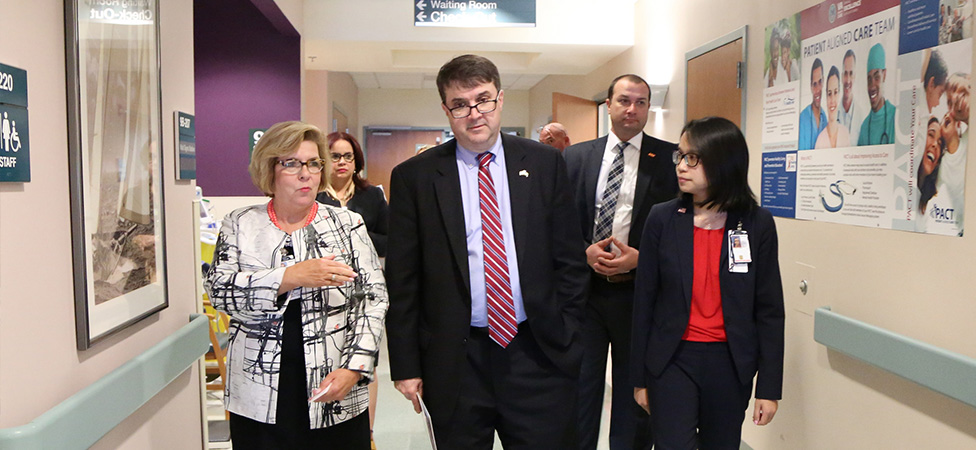May 22, 2018
House Committee Approves VA FY19 EHR Plan


On May 8th, the House Appropriations Committee (HAC) approved its FY19 Military Construction and Veterans Affairs appropriations bill by a unanimous vote, the first bill to clear the committee in the FY19 process. At $85.3 billion in net discretionary appropriations in FY19 (not including FY20 advances for medical care and benefits), the House bill essentially matches the President’s FY19 plan. Underneath that topline there are some differences, particularly in overall Departmental Administration — operating expenses, information technology, construction, Inspector General, etc. The House provides 17.2% more than the President, the main difference is an extra $2 billion in “deferred maintenance” construction to construct, modernize and maintain VA facilities also funded in the final FY18 appropriations package. A construction funding boost pushed FY18 VA Departmental Administration funding up almost 30%. The HAC-approved plan increases this account 12.9% in FY19.


The HAC bill funds VA’s all-encompassing Information Technology Systems (ITS) account at $4.1 billion, a 1.2% increase over FY18 that is about $79 million short of the President’s FY19 plan. The House spreads those reductions across Operations & Maintenance, Development, and Personnel subaccounts. According to staff, this proposal represents a search for cost savings without specific programmatic cuts in mind.
VA’s FY19 budget included a proposal to fund the Electronic Health Record in a new, dedicated appropriation account beginning in FY18. The Appropriations Committees approved the request in the FY18 bill, including $782 million in a new Veterans Electronic Health Record account to fund the VA’s adoption of the system currently deployed by the Department of Defense.
The new account is to be the “single source of funding within VA for the electronic health record effort.” The $782 million in FY18 includes contract costs, personnel, and related infrastructure support but not all the $782 million is new money. EHR was previously funded in both ITS and in the Veterans Health Administration (VHA). The President previously estimated $256 million in direct EHR funds for FY18 — $226 million in VHA for EHR modernization and interoperability and $30 million in ITS funding for development. Based on our analysis, $526 million of the FY18 appropriations appears to be net new funding.
FY18 contract funding has likely remained unobligated thus far because of the delay in signing the deal with Cerner Corporation. On Thursday, May 17th, Acting Secretary Wilkie announced that VA approved a $10 billion, 10-year contract with Cerner. Because the $782 million is available for 3 years, contract approval delays should not impact VA’s ability to spend those funds.
For FY19, VA previously requested an advance appropriation of $255 million in VHA. The updated VA proposal (adopted by HAC) eliminates the advance appropriation and includes $1.2 billion in the new Veterans Electronic Health Record account that is available for 3 years. These new funds are broken into:
- EHR Contract: $675 million
- Program Management: $120 million
- Infrastructure Support: $412 million
Infrastructure support funding is largely dedicated to making network and legacy improvements to facilitate the transition to EHR. A portion of the $412 million will include upgrading core equipment at local VA medical centers, including cabling, firewalls, routers, and other wireless infrastructure to meet DoD security standards.
The legacy system — VistA, the Veterans Integrated System Technology Architecture — must be updated and secured to transition to the new EHR. Infrastructure support funding includes VistA Standardization, Virtualization, and Adaptive Maintenance to create enterprise-wide analysis and updates of VistA software and architecture that had previously been modified at the local facility level. For security, VA is implementing VistA Security Scanning in 2018 to detect security vulnerabilities in source code and will begin Security Remediation this year through the end of 2020. The Enterprise Encryption Key Management System (EEKMS) contract software will deploy to 4 data centers this year to protect veterans’ data.